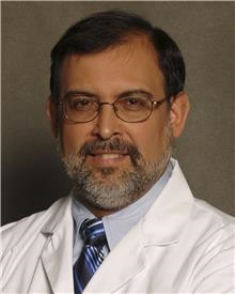Overview
Vascular neurology is the area of medicine in which selected neurological disorders involving the central nervous system due to ischemia or hemorrhage are assessed, monitored, treated and prevented using a combination of clinical evaluation, imaging, interventional techniques, and medication.
Cerebrovascular diseases represent the most frequent cause of adult disability and the third leading cause of deaths in the United States. With the population growing older, it projects to be a pervasive problem for many years to come.
Great strides have been made in recent years in the evaluation and treatment of stroke patients. Research into the pathophysiology of ischemic neuronal damage, the evolution of new brain imaging modalities, the development of interventional neuroradiological techniques, and the currently ongoing search for effective neuroprotective agents to complement thrombolytic therapy are some important endeavors in this rapidly advancing field of medicine.
Given the rapidly advancing practical knowledge in this field, a 3 year neurological residency program alone is not sufficient to become adept in all the nuances of stroke care. Hence the need for additional training in this field.
Cleveland Clinic Florida offers two 1-year Vascular Neurology fellowships designed to provide advanced training in the diagnosis, management, and research of patients with a wide spectrum of cerebrovascular disorders. This unique program will be based at 2 centers which complement each other by providing experience in the entire gamut of healthcare delivery to patients with stroke – a self-contained campus of a large private multispecialty group practice dedicated to outpatient and inpatient care as well as resident education and research, in addition to the resources of a large community hospital providing state-of-the-art stroke care.
Basic and advanced stroke services including diagnostic ultrasound (carotids and TCD), CT, CTA, MRI, MRA, MRV, SPECT, PET, cerebral angiography, interventional neuroradiology, neuro intensive care, and neurorehabilitation are offered. The fellows will have the opportunity to participate in ongoing clinical research and to develop their own research interests.
Program Director

Efrain Salgado, MD
The Program
Goals and Objectives
At the end of the fellowship, the fellow will be very proficient in the evaluation and treatment of any patient with cerebrovascular disease. The fellow will be proficient in doing and interpreting ultrasound of the carotids and intracranial circulation and will also have a working knowledge regarding the conduction of clinical trials on stroke.
The fellow will satisfy the requirements for residency education in Vascular Neurology as published by the Accreditation Council for Graduate Medical Education. The fellow will be ready to embark on a lifelong career in providing the best care for patients with stroke or at risk of being stroke victims.
The Program
Month 1
Supervised performance in the evaluation and treatment of patients with cerebrovascular disease (outpatient, inpatient) and in the performance of transcranial Doppler and carotid duplex ultrasonography; didactic lectures in cerebrovascular anatomy, physiology, transcranial Doppler, NIHSS certification training; introduction to clinical research trials and identification of personal research projects.
Months 2-3
Graduated reduction in supervision in the clinical evaluation and treatment of patients with cerebrovascular disease; performing and interpreting transcranial Doppler examinations and carotid duplex ultrasonography; active involvement in the recruitment of patients for stroke trials and the development of research projects; teaching the neurology residents, nursing, and public on issues regarding cerebrovascular disease.
Months 4-12
Substantial autonomy in all of the above.
Research
The fellow will be required to plan and complete a research clinical project of his/her choice in cerebrovascular disease. Presentation at a national meeting and publication in a peer-reviewed journal will be financially supported.
Call Schedule
Twice per week and every third weekend.
Rotations
The fellow will rotate 6 months off campus in Holmes Regional Medical Center in Melbourne, Florida, under the supervision of Dr. Dandapani to complement their training in a large community hospital.
Evaluations
Evaluation of fellows with feedback to fellows once per month.
Evaluation of staff and program at least twice per year.
Applicants
Applicants must have completed a residency program in neurology accredited by the ACGME or the Royal College of Physicians and Surgeons (Canada).
Benefits
Benefits information including salaries, insurance information and more, can be found by visiting the Graduate Medical Education Benefits page.
Staff
Program Director
Teaching Staff
Weston Facility
Melbourne Facility
- Bhuvaneswari K. Dandapani, MD
- William R. Sunter, Jr., MD
- Douglas J. Mogle, MD
- Timothy D. Carter, MD
Program Coordinator
Vanessa Santos, BHSA
2950 Cleveland Clinic Blvd.
Weston, Florida 33331
Phone: 954.659.5889
Fax: 954.659.6216
Email: santosv@ccf.org
